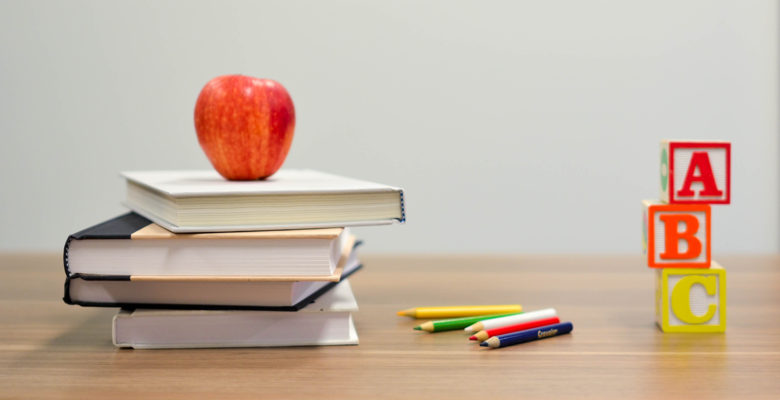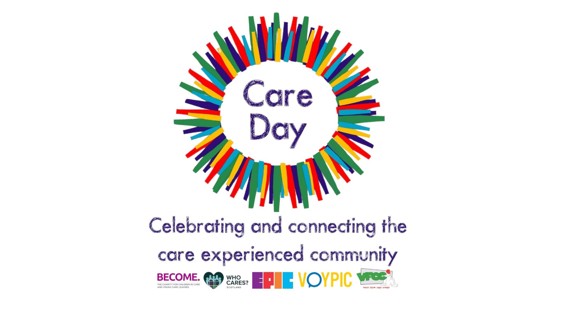Primary Teaching – Industry Insiders
Episode 1 of the Industry Insiders podcast features guest Emma-Jane Stewart, who shares her experience of studying primary teaching and what it’s like to be a Primary Teacher.
You can listen to the podcast episode on Spotify or Apple Podcasts, or read on for the interview.
What did you study and how did you know you wanted to be a teacher?
I’ve always known that I wanted to be a teacher. There are options to go into a full-time course, but I decided not to do that and instead I did an undergraduate degree in another area to specialise in something and keep my options open, in case I wanted to be away from primary teaching. Then I did the one-year conversion after taking a one years break from my undergrad. I did the PGDE course which takes one year and then you go into your probation year automatically after that.
What did you do your first undergraduate degree in?
I did my first degree in history and international relations.
How did you find the experience of studying history and then going into something like teaching?
I’m really glad I did it the way that I did. It meant that I was older and more mature by the time I started teaching. And it’s nice to have a break from school. If you go from school right into primary teaching then you’re essentially in a school for the whole of your life. So I’m glad I took the four years out, and it helped me develop things like essay writing skills. I think it was worth doing. It meant I could cope with the one-year course better. It was quite intense, but I’d already did four years of studying so I was ready to do the one year intensive and get it done.
What work experience did you do before your probation year?
When you do the PGDE you do placements whilst you’re on it. So, the one that I did you do three placements across all age groups in a primary school. But this varies depending on what university you go to and the placement schemes that you do. You get all the information for that during the application process. In terms of having more experience though, being around children is something I can’t recommend enough. You should definitely get enough under your belt if teaching is something you’re thinking of doing.
Did you do any work experience before your PGDE?
When I was in high school I did a lot of sports coaching and that’s how I got a flavour for what it might be like. During my undergraduate degree I was doing things like nannying, and I was a scout leader, to keep my contact with children up. I had the opportunity to be part of a science education scheme at a science centre here in Edinburgh so again had more experience delivering programs to children, but also planning them, so again a further taste of what it would be like to be a teacher. So when I went to the interview for my PGDE, the whole interview was centred around the experience you have. Experience is vital if teaching is something you want to do. You can’t talk about how you would teach if you’ve not been around kids, you need to know what it’s like.
Do you think the experience of having your work placement set you up for your probation year?
Yeah, it’s a really good thing to work alongside different teachers, so like I explained I got three different placements across three different ages, in different schools and therefore with different teachers. So first of all seeing lots of different school settings sets you up for your probation year because I got to experience schools in really challenging areas but also in affluent areas so that’s really important as in your probation year you don’t know where you’re going to go. And then getting the opportunity to work alongside three different teachers, and all teachers have very different styles so you get the opportunity to pick their brains, pull away the bits that you like, and get to know the bits that you wouldn’t do yourself.
After your work placements did you have a favourite age group?
I did actually, I really liked the middle – the P5s. I don’t know if it’s because of the kids, or the teacher I had at the time because she was fantastic, but interestingly now I’m all about the primary 7s.
What is the most challenging thing about being a teacher?
Teaching comes with a lot of challenges – absolutely. It can be really time consuming in terms of planning, particularly in Scotland as our curriculum is quite loose, there isn’t very much written down that’s concrete so you can spend a lot of time looking for resources. And if you care, which most teachers I know do, then you can end up doing that for a long period of time to give the children the best experiences possible. And so, that can be quite a never-ending process. And sometimes the children can be quite challenging too. So there are definitely challenges with teaching so my biggest advice is make sure it is something that you really want to do. If you’re not passionate about it then it can be very difficult.
What would you say is the most rewarding part about being a teacher?
No day is the same, and you can get up to lots of fun and interesting things which I don’t think any other job gets to do. For example today is Burns Day so I started my day out in the playground doing a ‘Strip the Willow’ with 250 kids and all the staff from school to some bagpipes, which, you know, is really good fun. You meet a lot of lovely, endearing characters in the children – there are some really great kids out there. Knowing that you make a difference – it doesn’t happen all the time but when someone says thank you and you know that you did something and they meant it when they say thank you, that’s really nice. But it’s the fun part. Teaching is really fun.
What is your favourite subject to teach?
I’m quote boring, I love teaching writing and I love teaching maths. The core. There’s something nice about the structure that goes along with those subjects which really suits my style. But it’s very individual. I work with teachers who adore teaching art, or PE – I mean, I enjoy these things too but for me it’s definitely the maths and the literacy.
What is the best piece of advice that you’ve been given for your job?
My tutor when I was doing my PGDE said that when your holidays are coming make sure that you treat them as a holiday and always make plans. I think that’s super important. The job Monday to Friday is very intense, and you could always be doing something more, so when the holidays come it would be so easy to spend time getting prepped for the next term, so I think she was right when she said it’s time to turn off because if you’re not fresh you won’t be the best teacher that you could be. If you’re grumpy they know you’re grumpy! So best to be relaxed.
If you're interested in getting into primary teaching and have been out of education for three years or more, our SWAP Access to Primary Teaching course could help you achieve your ambitions.



